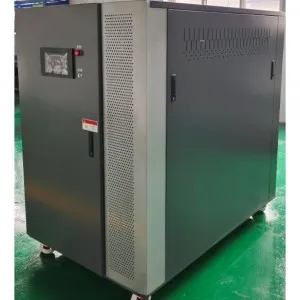- Afrikaans
- Albanian
- Amharic
- Arabic
- Armenian
- Azerbaijani
- Basque
- Belarusian
- Bengali
- Bosnian
- Bulgarian
- Catalan
- Cebuano
- China
- China (Taiwan)
- Corsican
- Croatian
- Czech
- Danish
- Dutch
- English
- Esperanto
- Estonian
- Finnish
- French
- Frisian
- Galician
- Georgian
- German
- Greek
- Gujarati
- Haitian Creole
- hausa
- hawaiian
- Hebrew
- Hindi
- Miao
- Hungarian
- Icelandic
- igbo
- Indonesian
- irish
- Italian
- Japanese
- Javanese
- Kannada
- kazakh
- Khmer
- Rwandese
- Korean
- Kurdish
- Kyrgyz
- Lao
- Latin
- Latvian
- Lithuanian
- Luxembourgish
- Macedonian
- Malgashi
- Malay
- Malayalam
- Maltese
- Maori
- Marathi
- Mongolian
- Myanmar
- Nepali
- Norwegian
- Norwegian
- Occitan
- Pashto
- Persian
- Polish
- Portuguese
- Punjabi
- Romanian
- Russian
- Samoan
- Scottish Gaelic
- Serbian
- Sesotho
- Shona
- Sindhi
- Sinhala
- Slovak
- Slovenian
- Somali
- Spanish
- Sundanese
- Swahili
- Swedish
- Tagalog
- Tajik
- Tamil
- Tatar
- Telugu
- Thai
- Turkish
- Turkmen
- Ukrainian
- Urdu
- Uighur
- Uzbek
- Vietnamese
- Welsh
- Bantu
- Yiddish
- Yoruba
- Zulu
Oct . 12, 2024 21:26 Back to list
aluminum die casting
The Advantages of Aluminum Die Casting
Aluminum die casting has emerged as a pivotal manufacturing process in various industries, recognized for its ability to produce high-quality, complex shapes with remarkable accuracy and efficiency. This method of casting aluminum is characterized by forcing molten metal under high pressure into reusable metal molds, or dies. The outcome is an impressive array of components that are not only lightweight but also exhibit excellent mechanical properties.
One of the key advantages of aluminum die casting is its superior dimensional accuracy. The precision of this process allows manufacturers to create intricate parts that require minimal machining or finishing. This advantage is particularly beneficial in industries such as automotive and aerospace, where tight tolerances and detailed features are essential for both performance and safety. In many cases, components can be produced to tolerances of ±0.01 mm, making aluminum die casting highly desirable for high-precision applications.
Another significant benefit of aluminum die casting is the material's inherent qualities. Aluminum is known for its strength-to-weight ratio, which means components made from this metal are both strong and lightweight. This characteristic is especially important in industries like automotive, where reducing weight can lead to improved fuel efficiency and overall performance. Furthermore, aluminum's resistance to corrosion enhances the longevity of the components, making it a smart choice for parts exposed to harsh environments.
aluminum die casting

Efficiency is another compelling reason for the popularity of aluminum die casting. The cycle times for this process are typically shorter than those for other manufacturing methods, such as sand casting or investment casting. This efficiency translates to lower production costs and faster time-to-market, which can be critical in competitive industries. Additionally, die casting allows for high production volumes, making it suitable for mass production of components at a fraction of the cost compared to other processes.
Sustainability is increasingly becoming a priority for manufacturers, and aluminum die casting aligns with this trend. Aluminum is highly recyclable, and the die casting process generates minimal waste compared to other casting methods. The ability to recycle scrap metal further reduces the environmental impact, making aluminum die casting an eco-friendly option for producing durable products.
In conclusion, aluminum die casting is a versatile and efficient manufacturing method that offers significant advantages in precision, material properties, production efficiency, and sustainability. As industries continue to innovate, the demand for high-quality, reliable components will undeniably position aluminum die casting as a preferred choice for manufacturers around the globe.
-
Premium Cast Iron Water Main Pipe: Durable, Corrosion-Resistant
NewsAug.03,2025
-
Durable Cast Iron Water Mains | AI-Optimized Systems
NewsAug.02,2025
-
High-Efficiency Propane Boiler for Baseboard Heat | Save Energy
NewsAug.01,2025
-
Premium Source Suppliers for Various Gray Iron Castings
NewsJul.31,2025
-
Durable Cast Iron Water Main Pipes | Long-Lasting
NewsJul.31,2025
-
High-Quality Cast Iron Water Main Pipe for Durable Infrastructure
NewsJul.30,2025


